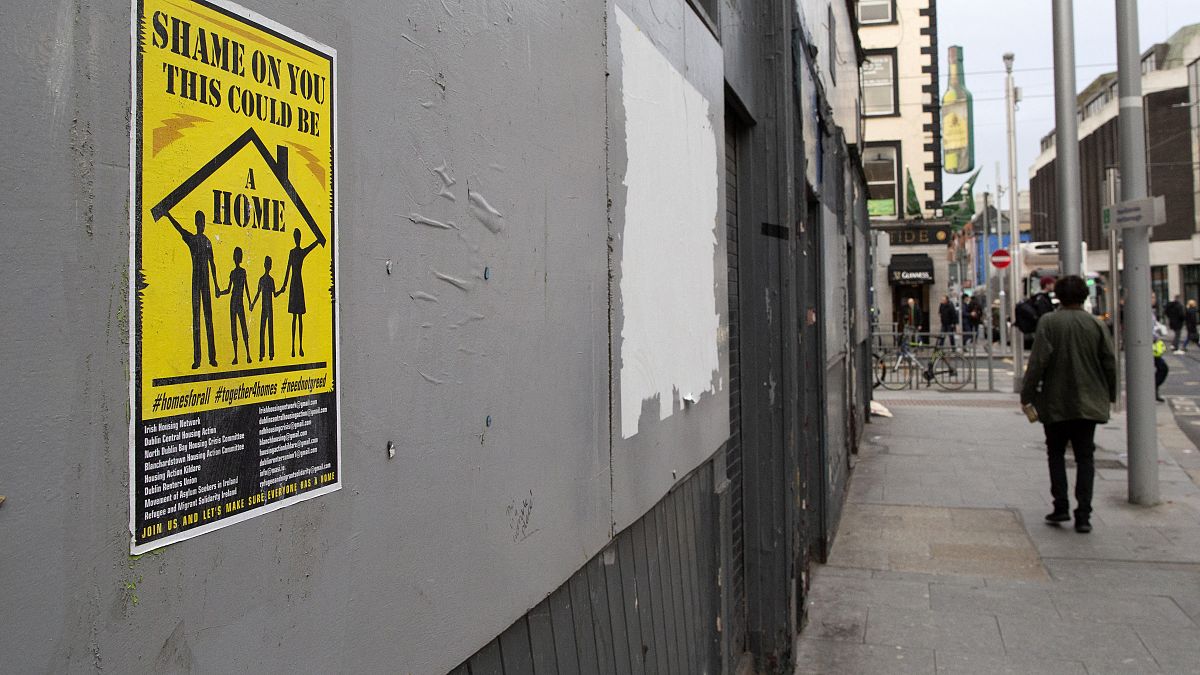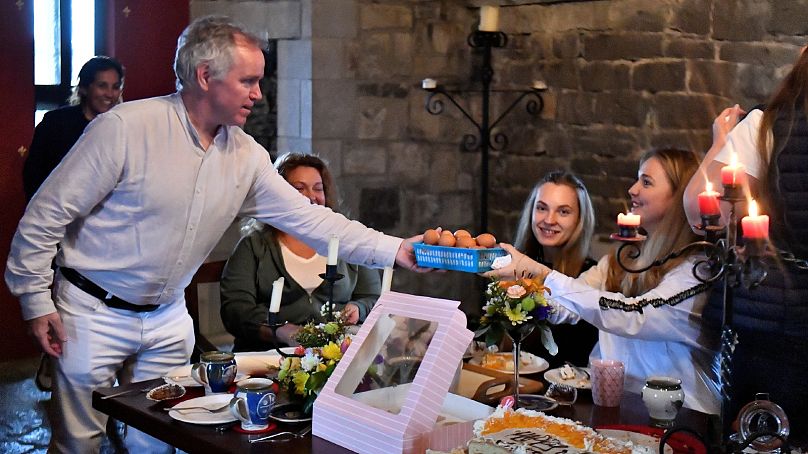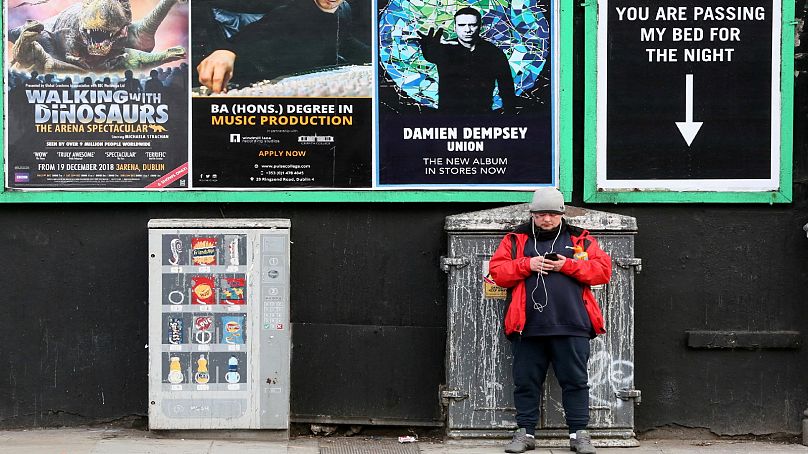Despite being thousands of kilometres away, the Ukraine war has impacted life in Ireland. Here's how.
1. It sparked a debate on Ireland's long-established neutrality
Unlike Sweden and Finland, which both requested NATO membership after Russia invaded Ukraine, Ireland’s neutrality hasn’t seriously been called into question.
Ireland has had a policy of neutrality dating back to before World War II with roots in attempts at conscription to World War I by Britain in 1918. Ireland is not part of any defence pact but is active in peacekeeping missions abroad.
Although the war has not inflamed public opinion into joining NATO, foreign affairs minister Simon Coveney said it was “changing the debate in Ireland.”
He said that “in the future, Irish people will be more open to collective approaches to security.”
In September, a group of politicians, parties and peace groups called the Irish Neutrality Group was formed and launched in Dublin, with its aim being the “protection and strengthening of Ireland’s neutrality”.
Under neutrality rules, Ireland has not sent military equipment to Ukraine. But it has dispatched medical equipment and humanitarian aid.
2. It exacerbated Ireland's acute accommodation crisis
Ireland was already suffering from an acute accommodation crisis even before the war started, with a lack of rental and student accommodation across cities and towns across the country.
However, with more than 60,000 refugees now in hotels and other accommodation, the war is highlighting further the scant availability of housing stock. Last month, students held a nationwide walkout in protest as their accommodation crisis intensified.
Ireland has been using hotels and student accommodation to house Ukrainian refugees since the war began, as well as a welcome hub at the Citywest conference centre on the outskirts of Dublin.
Over recent months, refugees have had to sleep at Dublin Airport at times when emergency accommodation was declared full, with the army opening a tent city in North Dublin to house refugees.
There are 39,000 Ukrainian refugees in 500 hotels and guesthouses across Ireland currently – using approximately one-in-five tourist rooms.
The Irish Tourism Industry Confederation stated last week that the tourism sector would face problems next year if this number didn’t decrease.
Meanwhile, Ukrainians continue to be placed in private homes from a pool of more than 10,000 householders in Ireland, coordinated by the Irish Red Cross. Government assistance for those hosting Ukrainian refugees is set to double to €800 a month.
3. It contributed to higher gas and electricity prices
As is the case elsewhere in Europe, increases in oil and natural gas prices -- in part due to Russia's invasion of Ukraine -- have led to higher consumer prices for heating oil, gas, electricity, diesel and petrol.
The Irish government launched a nationwide public information campaign in response to the crisis, informing citizens about energy efficiency and illustrating supports available to households.
Next year's budget introduced a range of support, aiming to keep Irish people “warm and well”.
Ireland’s main electricity provider, Electric Ireland, increased residential electricity bills by 26.7% and gas bills by 37.5% from 1st October this year -- its third increase in five months -- due to “unprecedented increases in international energy market prices".
This works out as an increase of €37.20 per month on the average electricity bill and €42.99 per month on the average residential gas bill. A €3 million Electric Ireland Hardship Fund has been made available for those unable to meet their bills.
Rival energy provider Energia also increased their prices by 33.5% for electricity and 47.11% for gas in October also, and there have been price increases across the board from all energy providers. Just last week, gas and electricity providers slashed discounts for customers changing providers from 40% to 10%. A ban on electricity and gas disconnections is set to come into force from December to February to protect consumers.
Meanwhile, Ireland’s state broadcaster, RTE, will switch off its Christmas lights at peak hours this year to save energy and avoid blackouts.
4. It helped push inflation to the highest level since 1984
Ireland has not been immune to the global rise in prices due to the war. Ireland’s Economic and Social Research Institute (ESRI) report earlier in the year stated that inflationary pressures were “likely to intensify as a consequence of the invasion of Ukraine”. It also said that disruptions to supply were likely to continue, affecting consumer prices.
This November, inflation reached its highest level since 1984. Price rises have affected Ireland’s farmers with fertiliser prices increasing threefold earlier in the year, and machinery parts proving harder to source.
The price of a pint is also set to increase by 9% next month, Heineken Ireland has informed Irish publicans, due to cost increases across the supply chain. This will affect a range of beers and ciders offered by the company -- including Beamish, Foster’s and Murphy’s. Guinness owner Diageo has said any price increases would be delayed until the new year.
According to a survey commissioned by the European Commission, 68% of Irish people surveyed said the war had “had serious financial consequences for them” personally.
However, there is some positive news, a Eurobarometer poll showed satisfaction levels over the Irish government’s response to the invasion of Ukraine is the second highest in the EU.


